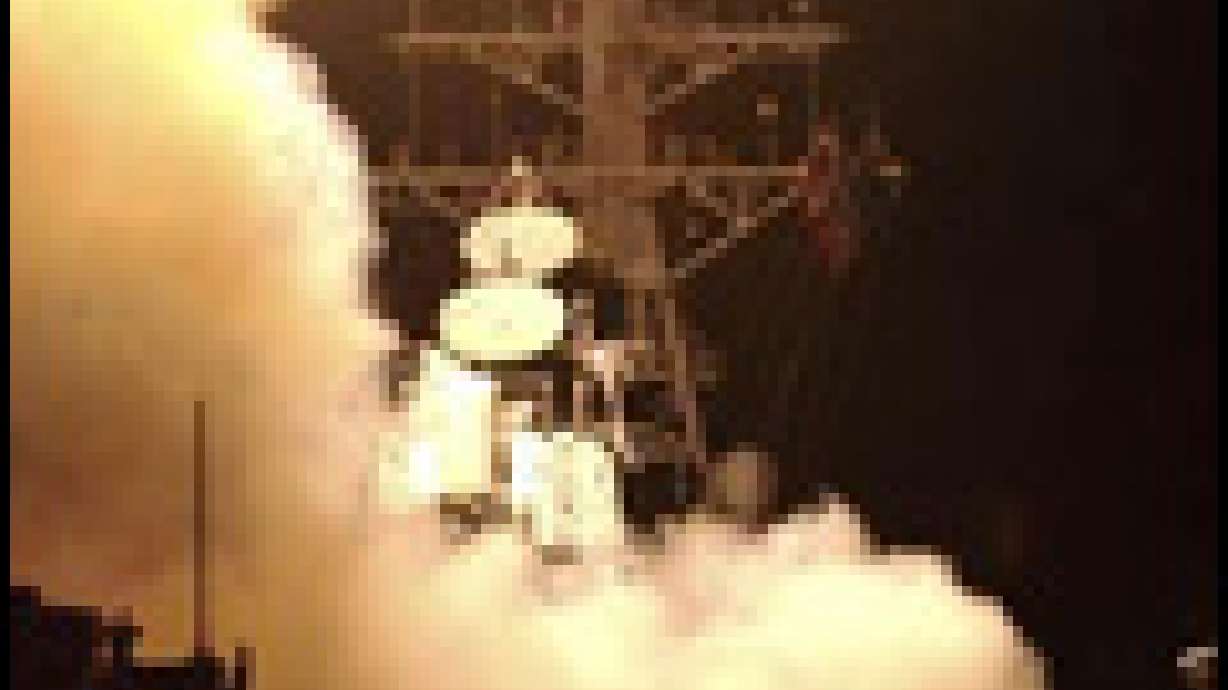Estimated read time: 3-4 minutes
This archived news story is available only for your personal, non-commercial use. Information in the story may be outdated or superseded by additional information. Reading or replaying the story in its archived form does not constitute a republication of the story.
WASHINGTON (AP) -- Defense Secretary Donald Rumsfeld said Thursday the United States hit a senior Iraqi leadership position in its initial strikes, but did not say whether Saddam Hussein survived.
Asked whether an Iraqi television broadcast after the attack showed Saddam or a double, Rumsfeld replied, "There is debate about that."
The assault "was the first. It will not likely be the last," Rumsfeld told reporters at the Pentagon.
Iraq may have set fire to two or three oil wells in the South, he said.

The Pentagon assessed the damage Thursday from its initial strikes against targets in Iraq and primed for a broader assault involving 250,000 U.S. and coalition forces.
The war's opening salvos were aimed directly at Iraq's leaders, including Saddam.
Commanders relied on more than 40 cruise missiles launched from Navy ships and submarines in the Persian Gulf and the Red Sea, and 2,000-pound precision-guided bombs dropped by Air Force stealth fighter jets, military officials said.
A senior military official, speaking on condition of anonymity, said military intelligence was picking up signs and "circumstantial evidence" that Saddam and his senior leadership were either incapacitated or out of communication with battlefield commanders. It was too early to say if they were killed or wounded.

"We are seeing no coordinated response to our first attack," the official said. "It's little things here and there. Some individual commanders are hunkering down while others are launching small attacks and setting fires."
Military officials "believe it is significant that there is a lack of coordination and significant resistance to what we did," the official added.
Rumsfeld was asked whether military planners knew Saddam's location Wednesday night.
"We had what I would characterize as very good intelligence that it was a senior Iraqi leadership compound. We do not know what the battle damage assessment" will be, he said.
Officials said the surprise attack was the product of a complex operation that benefited from electronic spying and other intelligence, special military operations, and changes in technology that permitted military chiefs to more quickly reconfigure the cruise missiles for a special, pinpointed attack.
Rumsfeld warned Iraqis not to go to work, but to stay in their homes and listen to coalition radio broadcasts.
"The day of your liberation may soon be at hand," Rumsfeld said. "The days of the Saddam Hussein regime are numbered. We continue to feel there is no need for a broader conflict if the Iraqi leaders act to save themselves and to prevent such further conflict."
Joint Chiefs of Staff Chairman Gen. Richard Myers warned that the war may not be easy.
"We do not regard combat as an easy task," Myers said at the Pentagon. "Warfare is dangerous. We will have casualties."
A helicopter carrying U.S. special forces crashed inside southern Iraq hours before the missile strikes Wednesday night, a senior defense official said. There were no casualties and the troops on board were all taken out safely, said the official, who spoke on condition of anonymity. The official said the military was taking steps to destroy the helicopter rather than let it fall into Iraqi hands.
The incident makes clear the Pentagon was using a well-worn war tactic of dropping special commando forces behind enemy lines before the opening of the rest of the campaign.
Officials declined to say exactly where the crash occurred. But a widely discussed part of the war plan has been to send special forces into the country to secure oil wells, suspected chemical weapons sites and other strategic locations -- as well as to search out Iraqi leadership.
The defense official also said a small plane headed from Iraq toward a Marine expeditionary force position in Kuwait but crashed short of its mark. The Marines donned gas masks because of fears that the plane could have been carrying chemical weapons, the official said. No agents were detected.
(Copyright 2003 by The Associated Press. All Rights Reserved.)









